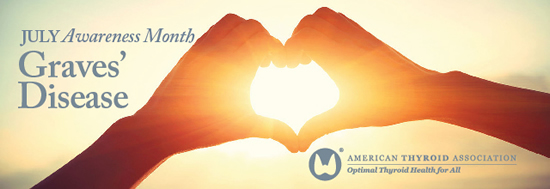
Clinical Thyroidology for the Public summarizes selected research studies discussed in the previous month’s issue of Clinical Thyroidology, an official publication of the American Thyroid Association. Editor-in-chief, Alan Farwell, MD, FACE
Available in pdf format for saving and printing and Web page format for viewing online
PDF Format for Saving and Printing
Clinical Thyroidology for the Public Volume 16 Issue 7 (PDF file, 2.46 MB)
TABLE OF CONTENTS – Web Format
HYPERTHYROIDISM .
Is surgery more cost-effective than radioactive iodine therapy as an alternative to antithyroid medication in the management of Graves’ disease?
The two definitive treatments available to treat Graves’ disease include radioactive iodine therapy and surgery. Both radioactive iodine therapy and surgery result in making the patient’s hypothyroid. This study was done to compare the cost-effectiveness of surgery as compared to radioactive iodine therapy.
Ma EZ et al 2023 Total thyroidectomy is more cost-effective than radioactive iodine as an alternative to antithyroid medication for Graves’ disease. Surgery 173:193–200. PMID: 36208983.
HYPOTHYROIDISM
Associations between subclinical hypothyroidism and renal function
It is well-recognized that overt hypothyroidism is one risk factor for kidney problems. The relationship between subclinical hypothyroidism and kidney function has been studied with unclear results. This large population study evaluated the risk of subclinical hypothyroidism on the development of chronic kidney disease.
Kim HJ et al 2023 Subclinical thyroid dysfunction and chronic kidney disease: A nationwide population-based study. BMC Nephrol 24:64. PMID: 36949396.
THYROID CANCER
Extent of surgery for papillary thyroid cancer differs between country and urban settings
Previous ATA guidelines favored total thyroidectomy for most papillary thyroid cancers greater than 1 cm in diameter. Now, the 2015 guidelines are much more flexible as they recommend a lobectomy if the cancer is limited to one lobe. This study looked to see whether there was a difference in extent of surgery between rural/country and urban settings in the United States and whether the 2015 guidelines changed any differences seen.
Collins R et al 2023 Urban and rural surgical practice
patterns for papillary thyroid carcinoma. Thyroid.. Epub
2023 Apr 4. PMID: 37014086.
THYROID CANCER
Large thyroid cancers that do not have high risk features have a low recurrence rate even after only a lobectomy
Thyroid cancers >4 cm are considered high risk by the ATA cancer guidelines. However, there has been a shift towards more conservative surgical approaches for certain cases of thyroid cancers, particularly those with low-risk features. The goal of this study was to investigate the extent of surgery needed for large thyroid cancers that do not exhibit other high risk features other than size.
Ghossein R et al 2023 Large (>4 cm) intrathyroidal encapsulated well-differentiated follicular cell-derived carcinoma without vascular invasion may have negligible risk of recurrence even when treated with lobectomy alone. Thyroid. Epub 2023 Mar 8. PMID: 36884299.
THYROID CANCER
Understanding childhood thyroid cancer and how children are unique
It is important to study thyroid cancer in children separately from adults. The information we learn about thyroid cancer in adults may not be true for children and may result in giving too much treatment. This study was done to better understand how thyroid cancer behaves in children and to figure out which factors could cause bad outcomes.
Review of: Saliba M et al 2022 Clinicopathologic and prognostic features of pediatric follicular cell-derived thyroid carcinomas: A retrospective study of 222 patients. Am J Surg Pathol 46:1659–1669. PMID: 36040037.
THYROID CANCER
“Smart medicines” for advanced thyroid cancers
Some advanced thyroid cancers can be very difficult to treat because they lose the ability to take up and concentrate the radioactive iodine. In the past decade, there have been oral “smart medicines” developed aimed at restoring the thyroid cancer cells ability to take up iodine with mixed success. The goal of the study is to assess the ability of “smart medicines” to bring thyroid cancer cells closer to their more natural form of the thyroid cell to make radioactive iodine more effective.
Weber M et al 2022 Enhancing radioiodine incorporation into radioiodine-refractory thyroid cancer with MAPK inhibition (ERRITI): A single-center prospective two-arm study. Clin Cancer Res 28:4194–4202. PMID: 35594174.



